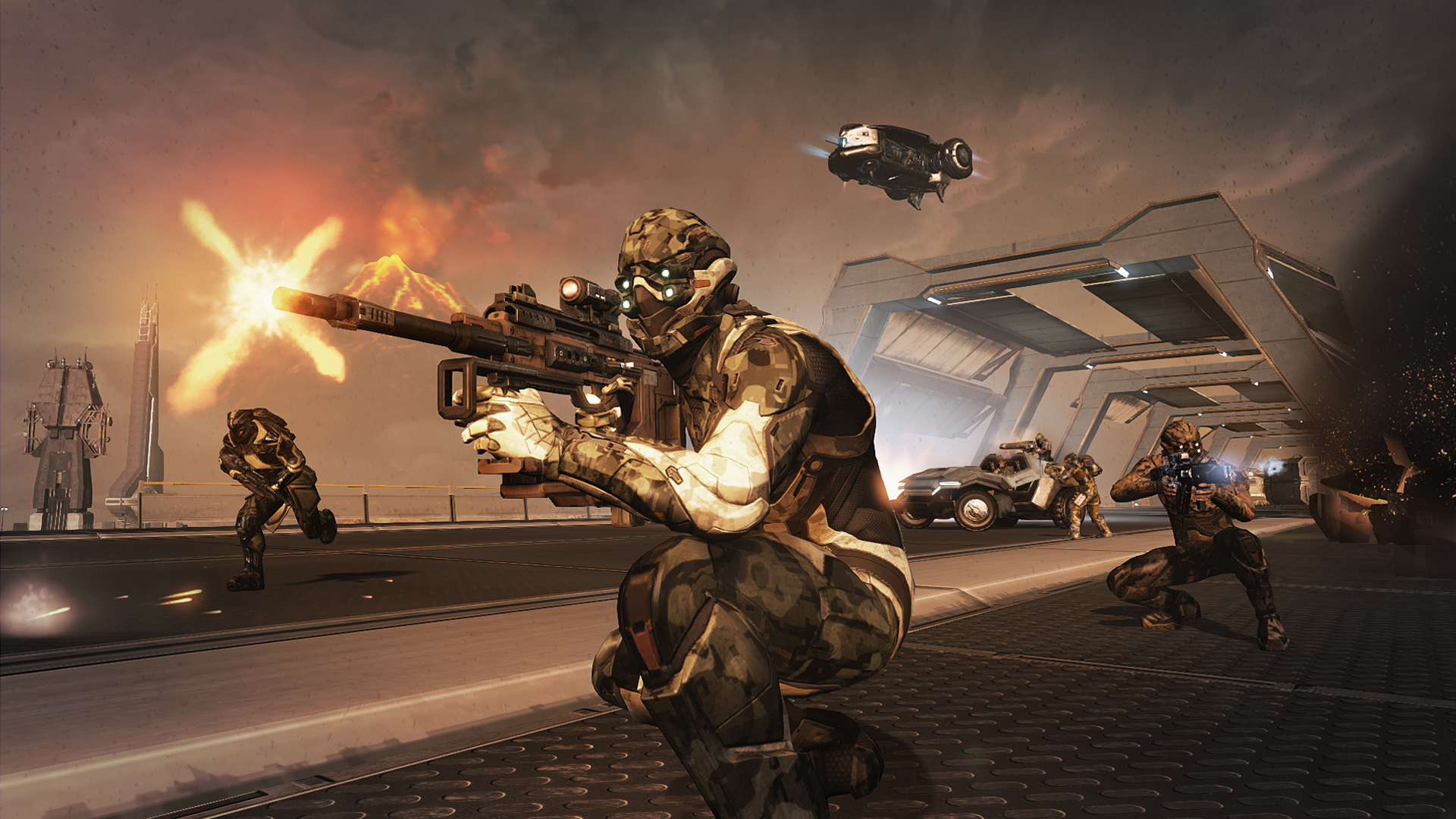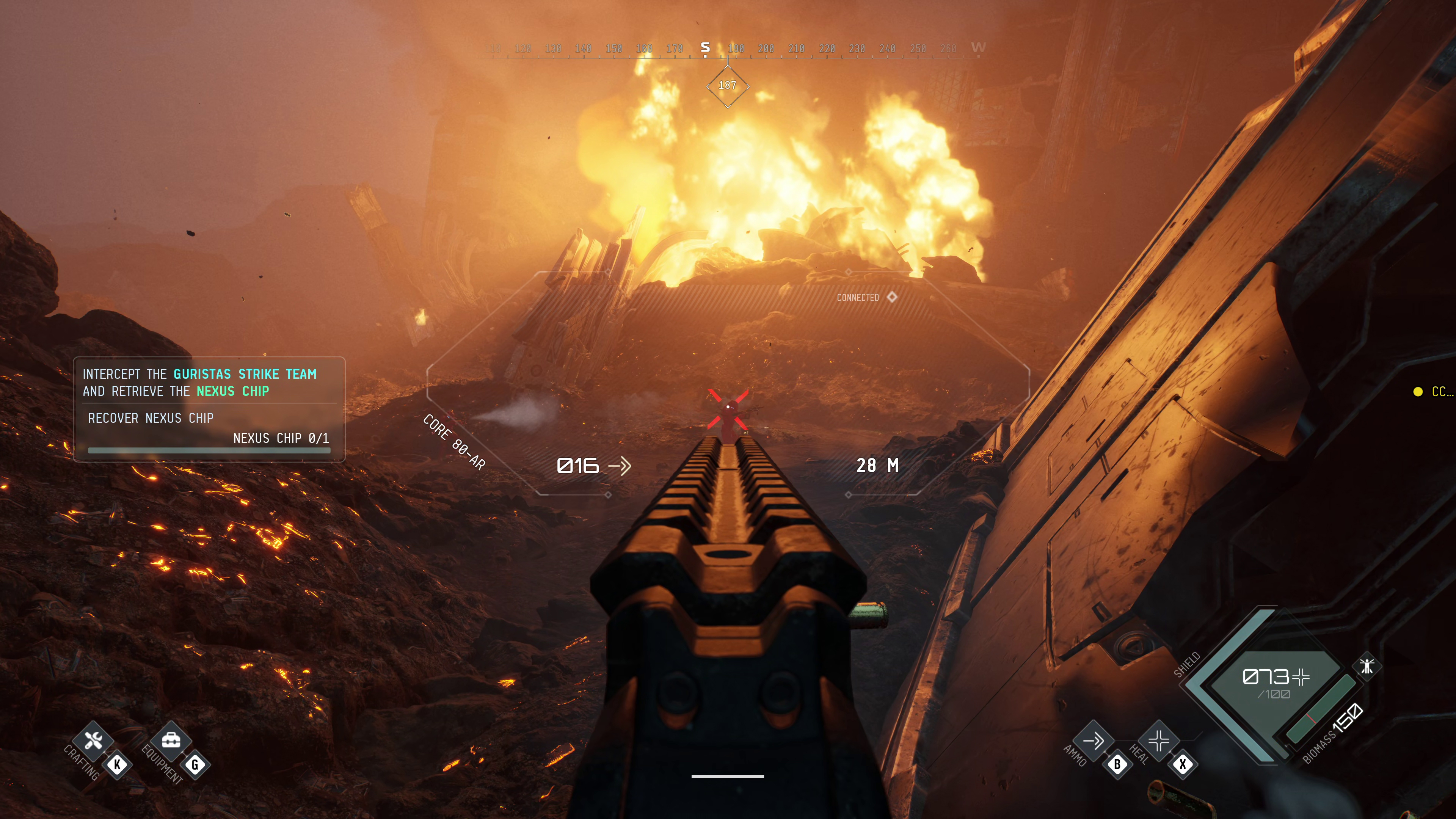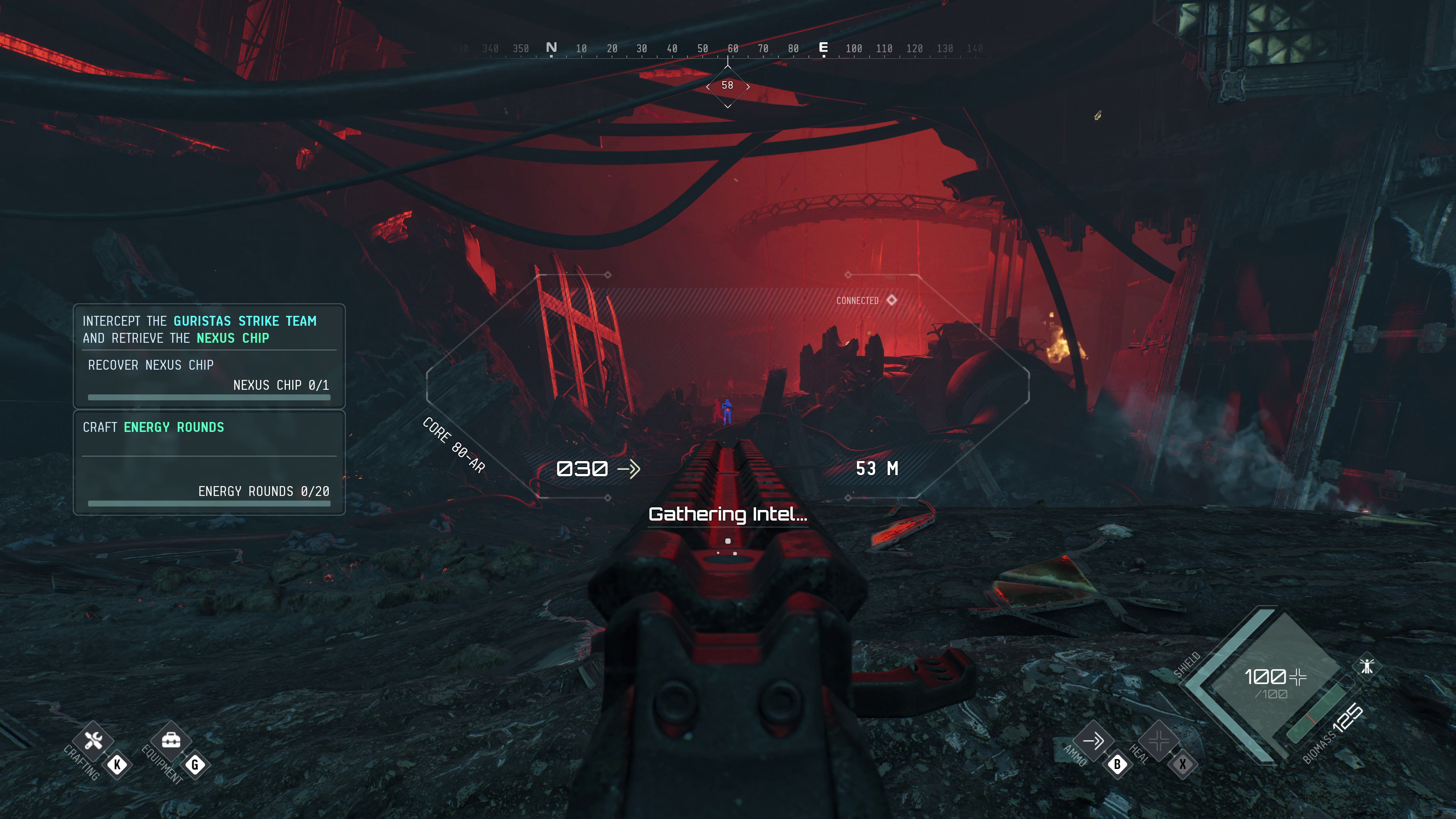CCP knows Dust 514 should never have been a console exclusive: 'If we had been on PC the whole time the game would literally be alive'
EVE Online director Snorri Árnason says the developer has some serious unfinished business in the FPS genre.

At EVE Fanfest, PC Gamer had the chance to sit down with EVE Online's game director Snorri Árnason for a wide-ranging conversation about where the game has been in recent years and where it's going. But in terms of big announcements, Fanfest's highlight for many EVE fans wasn't the main game itself, but CCP's return to the FPS with EVE Vanguard, a PvPvE looter-shooter that links to EVE Online itself and is a successor to 2013's ill-fated Dust 514.
Árnason himself has a lot of love for Dust 514: even though he was already working for CCP, it ended up being his route into EVE proper. "I started working at CCP in 2007," says Árnason, "because they were the first and only gaming company in Iceland. I was a huge gamer, primarily an FPS player, but also Ultima Online and later Warcraft. So I started working [at CCP] because it just sounded cool. I could have gone into literally anything like banking or fishing because I was an engineer, and a scientist, fundamentally."
He spent years working on EVE Online and went into the "deep rabbit hole" of understanding it without playing himself, but early development of Dust 514 was where he fell in love. "Playing Dust, basically, as an alpha tester while we're making it back in 2011," recalls Árnason. "And that game is… I love that game. That was basically the start of the whole passion. I spent endless money and time on it myself. Eventually I moved to Shanghai [Dust 514 was developed by CCP Shanghai]. And then I came back [to Iceland] five years ago."
I wouldn't say I loved Dust, but I did like it and, as happens with all games that don't quite make it, its subsequent reputation is a little unfair. I ask Árnason what he especially liked about it. He says a big thing for him is the idea of permanence in a game, with consequences and effects for what you're doing. "I don't want to be gamified," says Árnason. "So like, when, when the game tells me to reset, or to go to number two [a sequel], I don't like that idea. I just want to be in the game. So that really appealed to me, but also just the factions and the themes and it just felt grounded, realistic, a good backstory, good enemies, everything else. And like, it felt like it was a game that could grow endlessly, so that's why I kind of bought so much into it."

But Dust had problems, and not the least among them was CCP's unusual decision to make it a PlayStation 3 exclusive (Sony co-published the game and doubtless provided a financial incentive for doing so). That always felt so odd to me because, of all the PC-ass PC games, surely EVE Online is one of the most singular: You cannot imagine it being possible on any other platform, yet this linked experience was never on PC itself. I ask Árnason how he felt about that exclusivity and the decision to close the game in 2016.
"I was a part of making that decision," says Árnason. "So it was hard but needed to happen, because we simply couldn't continue on the platform. Then I personally went through all of the motions of trying to evolve it: so moving from PS3 to PC, updating, I went through all of these internal phases, we had Legion [a successor announced at EVE Fanfest 2014], various internal codenames etcetera. So it was hard but at that time I really thought we would do it, and it kind of felt that if we would come back to it we would be able to deliver and put it back on PC where it kind of belongs. Looking at, like, Warframe was big at the time. And I always wanted it to work and I think if we had been on PC the whole time the game would literally be alive. Like, it would just be growing and still be a part of EVE."
What might have been is now, at least, what really is. EVE Vanguard is going to have its First Strike limited test in December and it is most definitely a PC game that wants to build-out over time in the way Warframe has. It will be CCP's second FPS and it does seem like this idea, of a shooter that links into EVE Online and impacts the game in some meaningful way, is a dream CCP will not abandon.
Keep up to date with the most important stories and the best deals, as picked by the PC Gamer team.
"I would say it's almost like the fifth attempt," laughs Árnason. "You just don't know all the others! So I've been involved in all of them, I've run all of the shooter kind of experiments, prototypes, and we've learned something on the way every time, and okay maybe not always good things. There's just a lot of stuff that happens in development, whether it's fast or interesting things or trying to tap into the zeitgeist.

"I think we stopped doing that here and with Vanguard said 'okay, what's the game we want to make that fits completely in this universe?' And I think a big step of it was the way we treated this game as not a standalone game, we treated it as a feature within EVE, it simplified, it allows us to use the same kind of definitions. Less I would say tug-of-war between studios. This is a game, this is in EVE, you're basically just playing another version of the experience within that. That means we don't have to reinvent player roles, we tap into what we're already doing, which is that kind of strong organisations, creation, destruction, and lean into that."
So what does that mean? "So that immediately means that for Vanguard, there has to be a manufacturing industry element, like otherwise it's not going to be an EVE game, it's just going to be a shooter in an EVE skin. Going deep into the DNA and making sure that we create a sandbox experience that plays well: I'm a shooter player first so I have a quasi benchmark that I hold this game to as well, it has to be good enough. I think [CCP London] has been able to make a game where it's not just a nice game but when you play it, you'll feel like this is authentic, because we are doing things that other people or games are not doing on purpose. Because we kind of have to! And maybe that reduces our audience or something. But we're just sure that we have to be true."

Rich is a games journalist with 15 years' experience, beginning his career on Edge magazine before working for a wide range of outlets, including Ars Technica, Eurogamer, GamesRadar+, Gamespot, the Guardian, IGN, the New Statesman, Polygon, and Vice. He was the editor of Kotaku UK, the UK arm of Kotaku, for three years before joining PC Gamer. He is the author of a Brief History of Video Games, a full history of the medium, which the Midwest Book Review described as "[a] must-read for serious minded game historians and curious video game connoisseurs alike."

